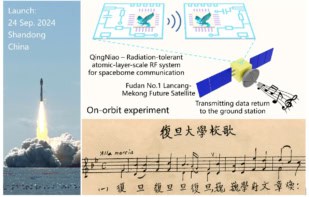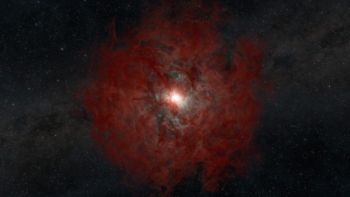Around 2000 astronomers from all over the world will converge in Manchester today for the 24th General Assembly of the International Astronomical Union. The meeting will cover topics as diverse as cosmology, planetary exploration and space weather in nearly 500 talks.

A team from the University of Colorado at Boulder will present evidence for what it believes is the youngest massive star cluster ever detected in the Milky Way. It contains about 100 type-O stars, the hottest and most massive stars in our galaxy. Astronomers believe they are less than a million years old. ‘These massive stars are in the birthing process’, explains Peter Conti of Boulder, ‘and they would make a very luminous ensemble if it were not for the absorption of optical light by dust in the Milky Way’. Clouds of gas and dust masking the cluster are a tell-tale sign of star formation.
Other talks at the conference cover the crop of newly found planets outside our solar system. Astronomers at the University of Texas have discovered a Jupiter-mass planet orbiting the nearby sun-like star Epsilon Eridani. A team from the University of California at Berkeley has observed three new extra-solar planets, and has tentative evidence that multi-planet systems may be more common than originally thought.
The IAU 24th General Assembly opens at the University of Manchester today and runs until 18 August.



